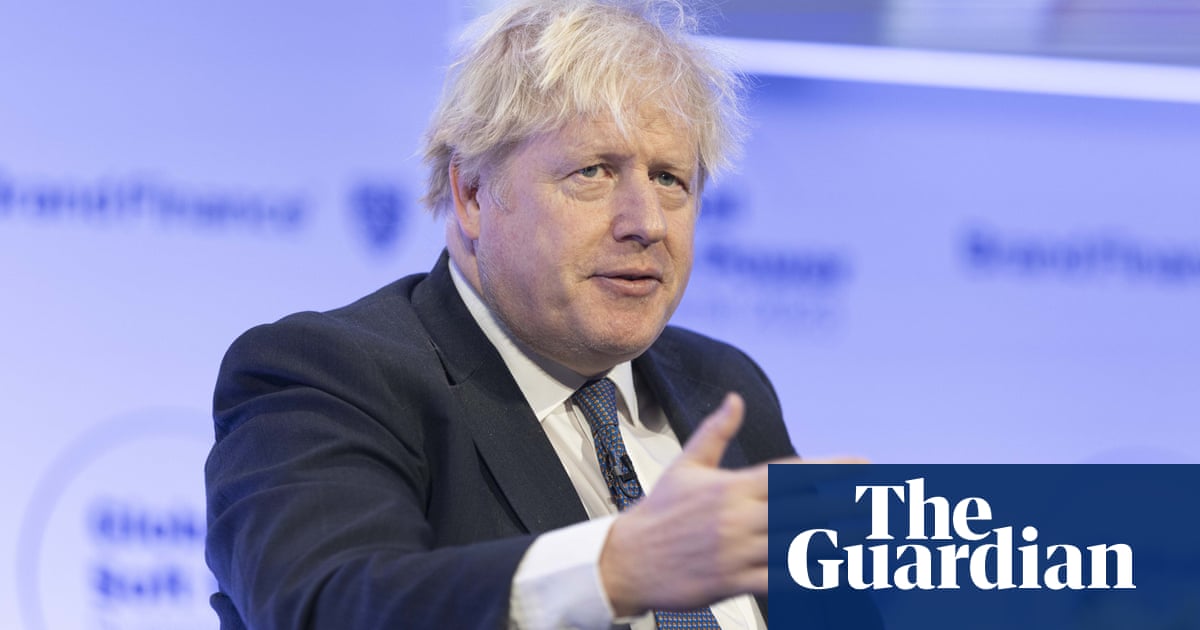
Boris Johnson is facing mounting pressure from Joe Biden and grassroots activists to be bolder at next month’s G7 summit amid signs that rows over vaccines and tax will dominate what the prime minister hoped would be a low-key event.
The chancellor, Rishi Sunak, kicks off two weeks of intense international diplomacy ahead of the June gathering of the leaders of major western economies in Cornwall when he hosts a virtual meeting of finance ministers and central bank governors on Friday.
After fractious summits when Donald Trump was US president, the prime minister had been hoping that the Carbis Bay summit would put on a show of unity and pave the way for a successful climate change deal at November’s Cop26 conference in Glasgow.
Yet the UK government is now being pushed hard by the Biden administration in three areas: on a minimum corporate tax rate, on the waiving of patents to speed up production of Covid-19 treatments in poor countries, and a G7 burden-sharing deal to fund a global vaccination push.
Meanwhile, African countries angered at what they see as “vaccine apartheid” have issued warnings that they will adopt a tough line at the Cop26 talks unless the G7 delivers a generous funding package in Cornwall.
“Vaccine nationalism is hindering progress on tackling the virus in Africa,” said Dr Ahmed Ogwell Ouma, deputy director, of Africa’s Centre for Disease Control, as he called on G7 countries to ensure vaccines were equitably shared. “Not doing so is a moral, political failure. I would like to call upon PM Johnson that generosity is a strategic issue. As hosts of the summit in June PM Johnson needs to take a lead.”
Tasneem Essop, executive director of Climate Action Network – a coalition of 1,300 environmental NGOs, said: “If developing countries do not get urgent help on vaccines and a radical hike in climate finance to cover new investments, adaptation and damage then Boris can forget any deal in Glasgow.”
Pressure on the government is also coming from a grassroots campaign – Crack the Crises – organised by 75 diverse NGOs including Oxfam, Save the Children, the Women’s Institute and the Royal Society for the Protection of Birds.
Kirsty McNeill, of Crack the Crises said: “There’s simply no way the government can claim the Global Britain mantle without a significant ramping up of their ambition in the next two weeks. Reversing the aid cuts, agreeing to share the financial burden for vaccinating the world and working with others to secure a decent tax deal would start to look like we want to play our part for people and planet.”
Whitehall sources played down the chances of a breakthrough on any of the unresolved issues at tomorrow’s meeting but Sunak is confident a face-to-face meeting of finance ministers next week will deliver a G7 deal that would ensure companies report the climate change risks to their business.
This modest step is unlikely to be enough for the US Treasury secretary Janet Yellen, who is being advised by David Lipton, the former number two at the International Monetary Fund. The US is concerned that a lack of action on Covid-19 at the G7 will mean handing victory to Russia and China – both of which have supplied vaccines to poor countries – in the international vaccine diplomacy struggle. Yellen also wants a global tax deal to provide cover for the increase in US corporation tax.
The plan put forward by Washington includes two main pillars: one enabling countries to tax some of the profits made by big companies based on the revenue they generate in that nation, rather than where the firm is located for tax purposes, and a second setting a minimum global corporation tax rate.
The proposals are being negotiated between 135 nations at the OECD in Paris, with an aim of reaching an agreement by October after decades of stalling progress. The Biden proposals have received backing from several nations, including the other countries in the G7 – Germany, France, Italy, Canada and Japan – but not from Britain.
Sunak is believed to be comfortable with agreeing a global minimum corporation tax rate, although he is prioritising an agreement on pillar one with the ambition to increase the levels of tax paid by large tech firms such as Amazon, Facebook and Google.
The US had proposed a rate of 21% for a global corporate minimum, but dropped the recommendation earlier this month to 15% in an apparent bid to secure international backing.
UK sources said a tax breakthrough was possible at the in-person meeting of finance ministers next week but said Sunak’s concern was that accepting the US plan would leave Britain worse off.
The former prime minister Gordon Brown, who has been pushing for G7 action on tax and vaccines, said the UK would eventually bow to pressure from Washington.
“ I don’t know why Britain is rejecting the US proposal for a minimum global tax rate,” Brown said. “I can only think it has something to do with protecting overseas tax havens.”












